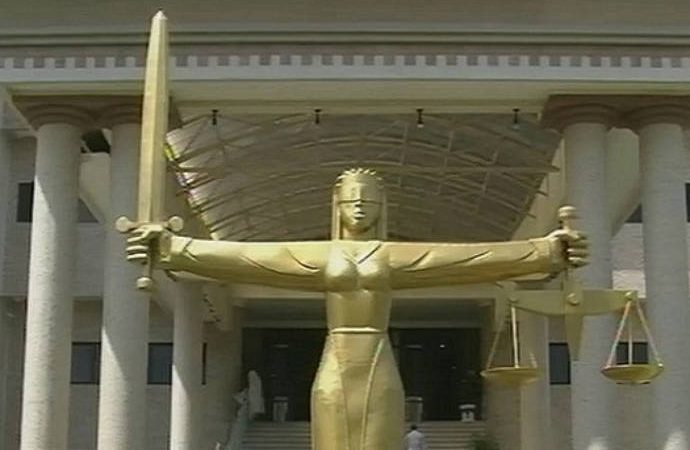LG Crisis: Court Urges Govt, Sacked Chairmen To Explore Amicable Resolution
…Adjourns Till 21 February
An Oyo State High Court sitting in Ibadan, the state capital, on Wednesday adjourned till 21st February 2020 the suit filed by the State Government in which it is seeking to restrain the sacked council chairmen from forcefully taking over the council secretariats in the state.
The sacked Council Chairmen under the aegis of Association of Local Government of Nigeria(ALGON) had sought to take control of the council secretariats by relying on a letter written by the Attorney General of the Federation, Abubakar Malami (SAN) and another by the Inspector General of Police, Mohammed Adamu, urging them to put effect to a judgement of the Supreme Court on local government administration in Ekiti State.
The Court presided by Justice Mahmood Abbas, lauded the parties for considering the option of amicable resolution of the matter, urging them to exercise maturity while discussing the option of amicable settlement.
Ruling on the application to allow for the parties to further explore the out-of-court settlement option, Justice Abbas adjourned the matter till February 21, warning all parties to see what they could do to arrive at an amicable resolution.
Oyo State Government and ALGON had, at the last adjourned date on February 5, 2020, declared the readiness to explore an out-of-court settlement, with the Court adjoining till February 12 to allow for that option.
The parties had, on Wednesday, approached the court to report the outcome of the out-of-court settlement option, which was agreed upon at the February 5, 2020 sitting.
In their presentations, counsels to the claimant/applicant(the State Government), Dr. Akin Onigbinde (SAN) and the counsels to the defendants(ALGON and others), reported on the meetings held to explore the out-of-court settlement option, noting that a settlement could not be reached on the matter so far.
Dr. Onigbinde stated that though the parties could not reach a conclusion on the amicable resolution of the dispute, the process could not be described as having failed, because some proposals were made, which the Government looked at and registered its difficulty in accepting.
“There was no failure of the first attempt. There is always a progression in this type of negotiation. It is not the day you start that you conclude. Actually, we have made some progress because there were certain proposals made, which we have looked at. We have registered our difficulty in accepting them. Now, we have another opportunity to look at those proposals again. So, it cannot be characterised as a failure. I will consider it as a stage in the process of what we are trying to achieve,” he said.
The counsel to the sacked chairmen, Mr. Kunle Sobaloju, maintained that though the parties could not come to an amicable resolution at the two meetings between last Saturday and Monday, his clients were not opposed to the out-of-court-settlement option.
He added that he would not be opposing the application to further explore that option, because the resolution of the matter would be in the interest of the state.
The Court lauded the parties for considering the option of amicable settlement, urging them to exercise maturity while discussing the option of settlement.
The presiding judge maintained that parties in the matter were stakeholders in the Oyo State project, noting that they would have to take the most valuable decision in the matter with a view to amicably resolving the crisis in the interest of the state.
He added that all parties in the matter must exercise a lot of maturity while discussing amicable resolution, noting that settlement “means a little compromise here and there.”
He said: “I did say during the last adjournment that all parties, in this case, are stakeholders in the Oyo State project… So, all parties must exercise a lot of maturity. The only duty of this court is to listen to all facts as you bring them and apply the law. The law is there, nobody can change it. The court cannot change the law. But the most valuable decision in this case will be taken by the parties.”





